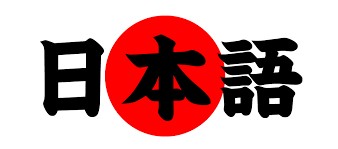At the beginning of the process of learning Japanese, you will be introduced to different Japanese writing systems which are mainly hiragana, katakana, and kanji. Due to the difficulty attached to learning these different writing systems, many learners are often tempted to focus on only one or two of them while neglecting the other ones. Therefore, you may be thinking about learning only hiragana without learning katakana, kanji, or another Japanese writing system.
Yes, you can learn just learn hiragana and neglect the other important Japanese writing systems – kanji and katakana. However, this is not recommended for you as it will limit what you are capable of reading or writing in Japanese. With only hiragana, you will only be able to read children’s books. So, if you want to read newspapers, food menus, train station posts, road posts, novels, and other essential everyday things, learning only hiragana is not enough for you.
Although you can start learning Japanese with only hiragana, you should bear it in mind that you also need to learn kanji and katakana. By doing this, you will have an all-around understanding of the Japanese language that you need for good communication.
What is hiragana?
In simple terms, hiragana is the standard Japanese writing system which is quite popular in Japan and other places where the language is used. It is important to note that this writing system is the most common of all Japanese writing systems. Therefore, it is guaranteed that you will come across hiragana when reading or writing anything in Japanese. This further indicates the importance of hiragana to anyone that is learning the Japanese language.
In most situations, hiragana is utilized individually to form Japanese words. Otherwise, it can be used in conjunction with some kanji characters to make words. Besides, hiragana is the first Japanese writing system that Japanese kids usually learn. This further reestablishes its importance.
Apart from hiragana, the other essential Japanese writing systems you need are kanji and katakana. Kanji is important for writing and reading Japanese as it is usually used for indicating the beginning and end of a Japanese word or sentence. Therefore, it gives meaning and clarity to many Japanese writings. Katakana, on the other hand, usually represents foreign words imported into the Japanese language. As a result of the essence of each writing system, you may need each of these three systems to form a sentence in Japanese.
Learning only hiragana without other writing systems
Now, let us go back to the initial question – can I just learn hiragana? Yes, you can learn only hiragana without learning kanji and katakana. By learning only hiragana, you will not have to deal with the challenges that come with learning kanji and katakana. Hence, this will ease your learning process significantly.
When you learn only hiragana, you will find it easy to read books that are meant for kids. This is because such books do not usually have kanji characters. Sometimes, such books use other means to indicate the beginning of new words or sentences; thus, you will be able to understand the books. Also, Japanese children’s books do not often have loan words (katakana); therefore, you can read them without any knowledge of katakana.
However, you must understand that learning only hiragana will limit your understanding of the Japanese language to a very large extent. In fact, you cannot read the majority of the things that are written in Japanese. Similarly, you will hardly be able to write anything in Japanese if it is only hiragana that you understand. This is due to the fact that most Japanese sentences will combine different writing systems; hence, you will not be able to understand what has been written if you don’t know the other writing systems.
Why you should not learn only hiragana
As suggested earlier, learning only hiragana will restrict your knowledge of the language. In fact, your ability to read and write Japanese will look like that of a 4-year old kid that is just learning the language.
Here are some of the reasons why you should not just learn hiragana:
- You will come across kanji and katakana in everyday use of Japanese
As long as writing Japanese words or sentences is concerned, kanji is often a part of the sentence. It is usually the kanji characters that will make it easy for you to understand the meaning of hiragana characters in the sentence or phrase. Therefore, if you don’t understand kanji, your knowledge of hiragana will not be useful in any way.
For instance, let’s assume that you are at a train station while waiting for your train. However, there are different types of trains that will arrive within the same hour. It is kanji that will be used for indicating the type of service that each train will provide. Hence, this will help you to know the right train to board to your destination. So, if you understand only hiragana, you will be lost in such a situation.
Apart from this example, you will also need kanji and katakana to recognize certain signposts, names of places, and lots more.
- Learning only hiragana will limit your vocabulary
Katakana is used for imported words. So, if your learning is limited to only hiragana, you will not understand the meaning of the words imported into the Japanese language. Similarly, understanding kanji can assist you to guess the meanings of certain Japanese words. Therefore, if you are only learning hiragana, you will not know katakana and kanji when used in certain sentences or phrases. As a consequence of this, your vocabulary will be quite limited.
- Learning only hiragana may indicate you are lazy
Like other places, most locals respect people that are making efforts to learn their language in the right way. Nonetheless, if you are limiting your learning to only hiragana, you are showing that you are lazy in learning the Japanese language. Therefore, if you intend to live and work in Japan, learning only hiragana is not good.



